Nancy AllbrittonFrank and Julie Jungers Dean of the College of Engineering and Professor of Bioengineering, University of Washington in Seattle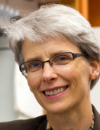 Nancy L. Allbritton is the Frank and Julie Jungers Dean of the College of Engineering and Professor of Bioengineering at the University of Washington in Seattle. |
Daniel ChiuA. Bruce Montgomery Professor of Chemistry, University of Washington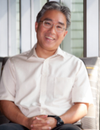 Daniel T. Chiu is currently the A. Bruce Montgomery Professor Chemistry, Endowed Professor of Analytical Chemistry, and Professor of Bioengineering at the University of Washington. He is a member of the University of Washington’s Center for Nanotechnology, Neurobiology and Behavior Program, and the Cancer Consortium of the Fred Hutchinson Cancer Research Center. He has authored more than 180 publications and is the inventor on over 40 issued patents. Dr. Chiu obtained a B.A. in neurobiology and a B.S. in chemistry at the University of California, Berkeley in 1993, and a Ph.D. in chemistry from Stanford University in 1998. |
Dino Di CarloArmond and Elena Hairapetian Chair in Engineering and Medicine, Professor and Vice Chair of Bioengineering, University of California-Los Angeles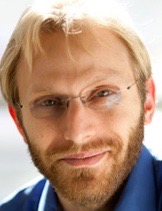 Dino Di Carlo received his B.S. in Bioengineering from the University of California, Berkeley in 2002 and received a Ph.D. in Bioengineering from the University of California, Berkeley and San Francisco in 2006. From 2006-2008 he conducted postdoctoral studies in the Center for Engineering in Medicine at Harvard Medical School. He has been on the faculty in the Department of Bioengineering at UCLA since 2008 and now as Professor of Bioengineering and Mechanical Engineering serves as the Vice Chair of the Department and as the director of the Cancer Nanotechnology Program in the Jonsson Comprehensive Cancer Center. His research pioneered the use of inertial fluid dynamic effects for the control, separation, and analysis of cells in microfluidic devices. His recent work extends into numerous other fields of biomedicine and biotechnology including directed evolution, cell analysis for rapid diagnostics, new amplified molecular assays, next generation biomaterials, and phenotypic drug screening. He has also been a leader in technology entrepreneurship: He co-founded and currently serves on the board of directors of five companies that are commercializing UCLA intellectual property developed in his lab (CytoVale, Vortex Biosciences, Tempo Therapeutics, Forcyte Biotechnologies and Ferrologix). Among other honors he received the Presidential Early Career Award for Scientists and Engineers (PECASE) and was elected a Fellow of the American Institute for Medical and Biological Engineering in 2016, was elected a Fellow of the Royal Society of Chemistry (FRSC) in 2014, was awarded the National Science Foundation (NSF) Faculty Early Career Development award and the U.S. Office of Naval Research (ONR) Young Investigator Award, the Packard Fellowship and Defense Advanced Research Projects Agency (DARPA) Young Faculty Award, and received the National Institutes of Health (NIH) Director’s New Innovator Award and Coulter Translational Research Award. |
Albert FolchProfessor of Bioengineering, University of Washington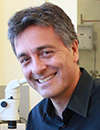 Albert Folch’s lab works at the interface between microfluidics and cancer. He received both his BSc (1989) and PhD (1994) in Physics from the University of Barcelona (UB), Spain, in 1989. During his Ph.D. he was a visiting scientist from 1990–91 at the Lawrence Berkeley Lab working on AFM/STM under Dr. Miquel Salmeron. From 1994–1996, he was a postdoc at MIT developing MEMS under Martin Schmidt (EECS) and Mark Wrighton (Chemistry). In 1997, he joined Mehmet Toner’s lab as a postdoc at Harvard-MGH to apply soft lithography to tissue engineering. He has been at Seattle’s UW BioE since June 2000, where he is now a full Professor, accumulating over 12,000 citations. In 22 years, he has supervised 19 postdocs (16% of whom have reached faculty rank), 36 graduate students (12 Ph.D. students, 25% of whom faculty rank, and 24 M.S. students), and ~43 undergraduates. In 2001 he received an NSF Career Award, and in 2014 he was elected to the AIMBE College of Fellows (Class of 2015). He served on the Advisory Board of Lab on a Chip 2010-2016 and serves on the Editorial Board of Micromachines since 2019. In 2022 he was elected a member of the Institute for Catalan Studies, one of the highest honors bestowed on Catalan scientists. He is the author of 5 books (sole author), including Introduction to BioMEMS (2012, Taylor&Francis), a textbook adopted by >103 departments in 18 countries, and Hidden in Plain Sight (MIT Press, 2022). Since 2007, the lab runs a celebrated outreach art program called BAIT (Bringing Art Into Technology), which has produced seven exhibits, a popular resource gallery of >2,000 free images related to microfluidics and microfabrication, and a YouTube channel that plays microfluidic videos with music which accumulate ~163,000 visits since 2009. |
Kevin HealyJan Fandrianto and Selfia Halim Distinguished Professorship in Engineering, University of California, Berkeley Kevin E. Healy, Ph.D. is the Jan Fandrianto and Selfia Halim Distinguished Professor in Engineering at the University of California at Berkeley in the Departments of Bioengineering, and Materials Science and Engineering. He served as Chair of the Department of Bioengineering from 2011 to 2015. He is a thought leader and innovator working at the interface between stem cells and materials science to develop dynamic engineered systems to explore both fundamental biological phenomena and new applications in translational medicine. His group currently conducts research in the areas of: bioinspired stem cell microenvironments to control stem cell lineage specification and self-organization into microtissues or organoids; bioinspired systems for regenerative medicine; biological interfaces; and, microphysiological systems for drug development, gene editing, and environmental toxicity screening. Professor Healy is an elected Fellow of AIMBE, AAAS, FBSE, BMES, and recently received an Alexander von Humboldt Foundation Award. He has chaired the Gordon Research Conference on Biomaterials and Biocompatibility, and has been honored with the 2011 Clemson award for outstanding contributions to basic biomaterials science. He is a named inventor on numerous issued United States and international patents relating to biomaterials, therapeutics, stem cells, and medical devices, and has founded several companies to develop these systems for applications in biotechnology and regenerative medicine. |
Amy HerrProfessor, University Of California Berkeley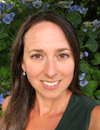 Amy E. Herr received a BS degree in Engineering & Applied Science from the California Institute of Technology and MS and PhD degrees from Stanford University in Mechanical Engineering. From 2002-2007, she was a staff member in the Biosystems Research Group at Sandia National Laboratories (Livermore, CA). Professor Herr has been recognized as: 2012 Young Innovator Award from Analytical Chemistry/CBMS, 2012 Ellen Weaver Award from the Association for Women in Science (AWIS, for mentoring), 2011 NSF CAREER award, 2010 NIH New Innovator Award, 2010 Alfred P. Sloan Research Fellowship in chemistry, 2010 New Investigator Award in Analytical Chemistry from Eli Lilly & Co., 2009 Defense Advanced Research Projects Agency (DARPA) Young Faculty Award, among others. Professor Herr has been formally recognized for her teaching & mentoring. Her research interests include bioinstrumentation innovation needed to advance quantitation in life sciences and clinical problems, in particular the study and application of electrokinetic phenomena in multi-stage, heterogeneous bioanalytical microsystems. |
Abraham LeeProfessor, University of California Irvine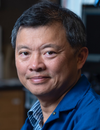 Abraham (Abe) P. Lee is Professor of Biomedical Engineering (BME) and Mechanical and Aerospace Engineering (MAE) at the University of California, Irvine. He is Director of the NSF I/UCRC “Center for Advanced Design & Manufacturing of Integrated Microfluidics” (CADMIM). Currently Dr. Lee serves as Editor-in-Chief for the Lab on a Chip journal. Prior to UCI, he was a program manager in the Microsystems Technology Office at DARPA (1999-2001) and a group leader with Lawrence Livermore National Lab. Over the years, Dr. Lee has pioneered research in applying microfluidics to biomedical applications, and currently focuses on integrated microfluidic systems for precision medicine. His research has contributed to the founding of several start-up companies. He owns 45 issued US patents and is author of over 100 journals articles. Professor Lee was awarded the 2009 Pioneers of Miniaturization Prize and is an elected fellow of the NAI, AIMBE, RSC, ASME, and BMES. |
Carl MeinhartProfessor, University of California-Santa Barbara Dr. Meinhart is a professor of Mechanical Engineering at the University of California – Santa Barbara. He completed his PhD and Postdoctoral work at the University of Illinois in June of 1995. At the University of Illinois, his research involved the investigation of turbulent flows. Since coming to UCSB in 1996, his research has focused on developing microfluidic devices and exploring their fundamental transport mechanisms. Dr. Meinhart is a fellow of the American Physical Society. Prof. Meinhart’s group pioneered the concept of free-surface microfluidics. In collaboration with Prof. Martin Moskovits’ group in chemistry at UCSB, and their respective students, they have developed a novel technique for measuring gas-phase chemicals with very high sensitivity. |
Anita RogacsHead of Life Sciences Strategy and R&D, HP Labs Dr. Anita Rogacs has done extensive work in the field of microfluidics, analytical chemistry, molecular biology, nanotechnology, plasmonics, and Raman spectroscopy, authoring over 30 publications. Anita received her M.S. and Ph.D in Mechanical Engineering from Stanford University, and has studied business at the Stanford Graduate School of Business. She is a National Science Foundation (NSF) and Sandia National Laboratories Fellow. After receiving her Ph.D., she joined HP’s CTO office and Labs, where she leads strategy and the technology development of a broad array of Life Sciences platforms. |
Holger SchmidtNarinder Kapany Professor of Electrical Engineering, University of California-Santa Cruz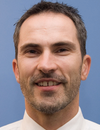 Holger Schmidt received the Ph.D. degree in electrical and computer engineering from the University of California Santa Barbara and served as a Postdoctoral Fellow at M.I.T. He is currently the Narinder Kapany Chair of Optoelectronics and Distinguished Professor of Electrical and Computer Engineering at UC Santa Cruz. He directs the W.M. Keck Center for Nanoscale Optofluidics and has served as the Associate Dean for Research in the Baskin School of Engineering. His research interests cover a broad range in photonics and integrated optics, including optofluidic devices, nanopore sensors, nano-magneto-optics, spintronic devices, and ultrafast optics. He has authored more than 400 publications, several book chapters, and co-edited the CRC Handbook of Optofluidics. He is a Fellow of the National Academy of Inventors, the IEEE and the Optical Society of America. He received an NSF Career Award, a Keck Futures Nanotechnology Award, and the Engineering Achievement Award by the IEEE Photonics Society. |
Steve SoperFoundation Distinguished Professor, Director, Center of BioModular Multi-Scale System for Precision Medicine, The University of Kansas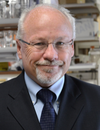 Prof. Soper is currently a Foundation Distinguished Professor in Chemistry and Mechanical Engineering at the University of Kansas, Lawrence. Prof. Soper also holds an appointment at Ulsan National Institute of Science and Technology in Ulsan, South Korea, where he is a World Class University Professor. He is also serving as a Science Advisor for a number of major worldwide companies. Prof. Soper is currently on the Editorial Board for Scientific Reports and Journal of Micro- and Nanosystems. |
Shannon StottAssistant Professor, Massachusetts General Hospital & Harvard Medical School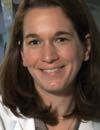 The Stott laboratory is comprised of bioengineers and chemists focused on translating technological advances to relevant applications in clinical medicine. Specifically, we are interested in using microfluidics and imaging technologies to create tools that increase understanding of cancer biology and of the metastatic process. In collaboration with the Toner, Haber and Maheswaran laboratories, we have developed a microfluidic device that can isolate extraordinary rare circulating tumor cells (CTCs) from the blood of cancer patients. We are striving to employ new imaging modalities to extract as much information as possible from these rare cells while pushing the technology further for early cancer detection. Ultimately, we hope that by working in close partnership with the molecular and cell biologist at the Mass General Cancer Center, we can create new tools that directly impact patient care. |




